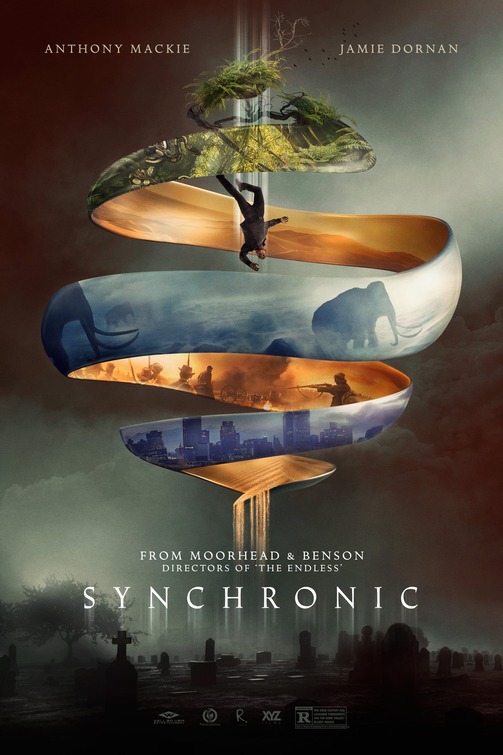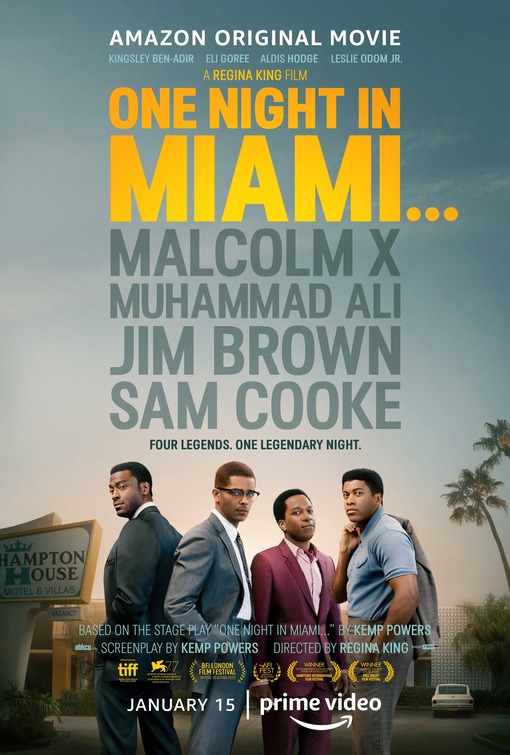Dear Evan Hansen
These days it’s far more likely for a popular movie to be turned into a Broadway musical, but I long for the time when the hit Broadway musical came first and then became a great film. West Side Story, My Fair Lady, and The Sound of Music are perfect examples of this. It rarely happens […]
Synchronic

Synchronic is one of those films that is conveniently described as “interesting” and it’s unclear whether you mean it as a compliment. The ambiguous word is perfection because it fits this movie to a T. Steve and Dennis (Anthony Mackie and Jamie Dornan) are paramedics in New Orleans who also happen to be best friends. […]
Another Round

The Academy Awards often bring welcome attention to overseas cinema that many U.S. viewers haven’t seen. The Oscars still have a certain cachet. Though people deride their selections and snubs, critics continue to discuss them passionately on social media. When the announcement occurred on Monday, March 15th, Another Round surprisingly emerged with TWO nominations. This […]
Nomadland
Nomadland: Surviving America in the Twenty-First Century was published by journalist Jessica Bruder in 2017. She wrote a non-fiction book detailing the phenomenon of nomads which significantly increased after 2009 in the wake of the Great Recession. Older, adventuresome types adopted a transient existence, taking to the road in RVs, vans, and campers. These so-called […]
Pieces of a Woman
If nothing else, Pieces of a Woman will be remembered for a home birth sequence that unfolds in a single take less than 10 minutes in. Martha (Vanessa Kirby) and Sean (Shia LaBeouf) are having a baby. Their midwife Barbara is currently involved with another birth so she sends another, Eva (Molly Parker), in her […]
One Night in Miami

So let me set the stage. Muhammad Ali (Eli Goree) has just pulled off one of the greatest upsets in sporting history by beating Sonny Liston (Aaron D. Alexander). Civil rights activist Malcolm X (Kingsley Ben-Adir), singer Sam Cooke (Leslie Odom Jr. ), and NFL player Jim Brown (Aldis Hodge) were all ringside to witness […]
News of the World
United 93 and Captain Philips are two of the greatest films of the past 15 years. Paul Greengrass directed both. He also helmed 3 of the 5 entries in the Jason Bourne spy series. They include my favorites: Supremacy (2004) and Ultimatum (2007). So it goes without saying that my anticipation for Greengrass’ latest endeavor […]
Minari
I love period pieces set in the 1980s. That statement may sound like I’m referring to one of those comedic coming of age tales. Minari is a chronicle about the American dream. This is a loving recollection, externally dealing with the immigrant experience but intimately concerning a move the Yi family makes from California to […]
Soul
The meaning of life is a pretty grandiose idea for any movie to tackle and perhaps even more uncommon for a cartoon. However if any studio could rise to the challenge, it’s Pixar. Every release is always highly anticipated. This one is decidedly different because it’s being made available on Disney+ as many theaters are […]
Ma Rainey’s Black Bottom
We get a taste of Ma Rainey’s immeasurable talent at a blues concert on stage right at the beginning. Our story concludes with a staid rendition of a song in a recording studio that has a much different energy. In between, there are a lot of lengthy speeches that serve to explain why. This is […]
